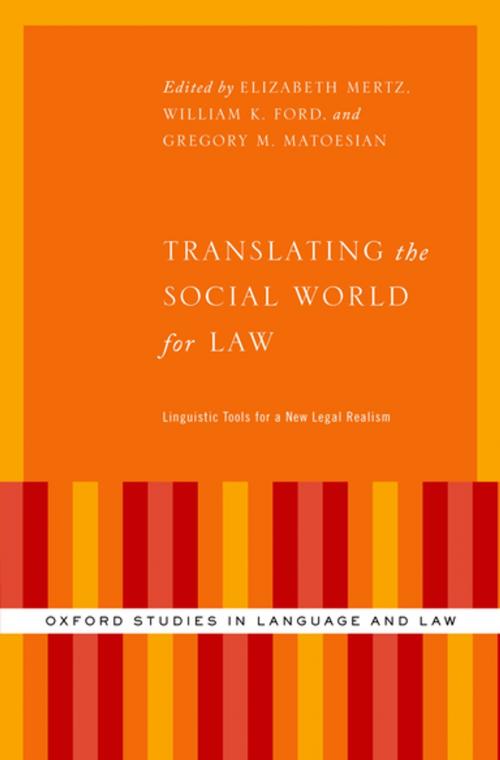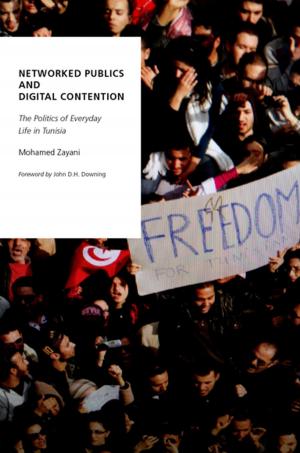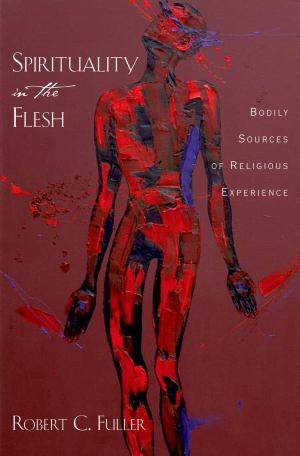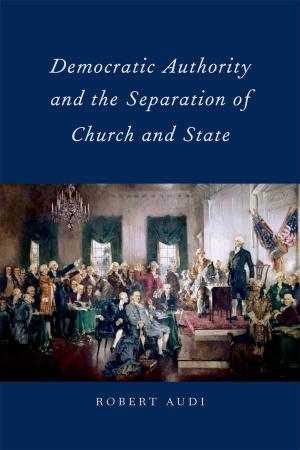Translating the Social World for Law
Linguistic Tools for a New Legal Realism
Nonfiction, Reference & Language, Law, Legal Writing, Jurisprudence, Language Arts, Linguistics| Author: | ISBN: | 9780190619794 | |
| Publisher: | Oxford University Press | Publication: | June 22, 2016 |
| Imprint: | Oxford University Press | Language: | English |
| Author: | |
| ISBN: | 9780190619794 |
| Publisher: | Oxford University Press |
| Publication: | June 22, 2016 |
| Imprint: | Oxford University Press |
| Language: | English |
This volume examines the linguistic problems that arise in efforts to translate between law and the social sciences. We usually think of "translation" as pertaining to situations involving distinct languages such as English and Swahili. But realistically, we also know that there are many kinds of English or Swahili, so that some form of translation may still be needed even between two people who both speak English-including, for example, between English speakers who are members of different professions. Law and the social sciences certainly qualify as disciplines with quite distinctive language patterns and practices, as well as different orientations and goals. In coordinated papers that are grounded in empirical research, the volume contributors use careful linguistic analysis to understand how attempts to translate between different disciplines can misfire in systematic ways. Some contributors also point the way toward more fruitful translation practices. The contributors to this volume are members of an interdisciplinary working group on Legal Translation that met for a number of years. The group includes scholars from law, philosophy, anthropology, linguistics, political science, psychology, and religious studies. The members of this group approach interdisciplinary communication as a form of "translation" between distinct disciplinary languages (or, "registers"). Although it may seem obvious that professionals in different fields speak and think differently about the world, in fact experts in law and in social science too often assume that they can communicate easily when they are speaking what appears to be the "same" language. While such experts may intellectually understand that they differ regarding their fundamental assumptions and uses of language, they may nonetheless consistently underestimate the degree to which they are actually talking past one another. This problem takes on real-life significance when one of the fields is law, where how knowledge is conveyed can affect how justice is meted out.
This volume examines the linguistic problems that arise in efforts to translate between law and the social sciences. We usually think of "translation" as pertaining to situations involving distinct languages such as English and Swahili. But realistically, we also know that there are many kinds of English or Swahili, so that some form of translation may still be needed even between two people who both speak English-including, for example, between English speakers who are members of different professions. Law and the social sciences certainly qualify as disciplines with quite distinctive language patterns and practices, as well as different orientations and goals. In coordinated papers that are grounded in empirical research, the volume contributors use careful linguistic analysis to understand how attempts to translate between different disciplines can misfire in systematic ways. Some contributors also point the way toward more fruitful translation practices. The contributors to this volume are members of an interdisciplinary working group on Legal Translation that met for a number of years. The group includes scholars from law, philosophy, anthropology, linguistics, political science, psychology, and religious studies. The members of this group approach interdisciplinary communication as a form of "translation" between distinct disciplinary languages (or, "registers"). Although it may seem obvious that professionals in different fields speak and think differently about the world, in fact experts in law and in social science too often assume that they can communicate easily when they are speaking what appears to be the "same" language. While such experts may intellectually understand that they differ regarding their fundamental assumptions and uses of language, they may nonetheless consistently underestimate the degree to which they are actually talking past one another. This problem takes on real-life significance when one of the fields is law, where how knowledge is conveyed can affect how justice is meted out.















